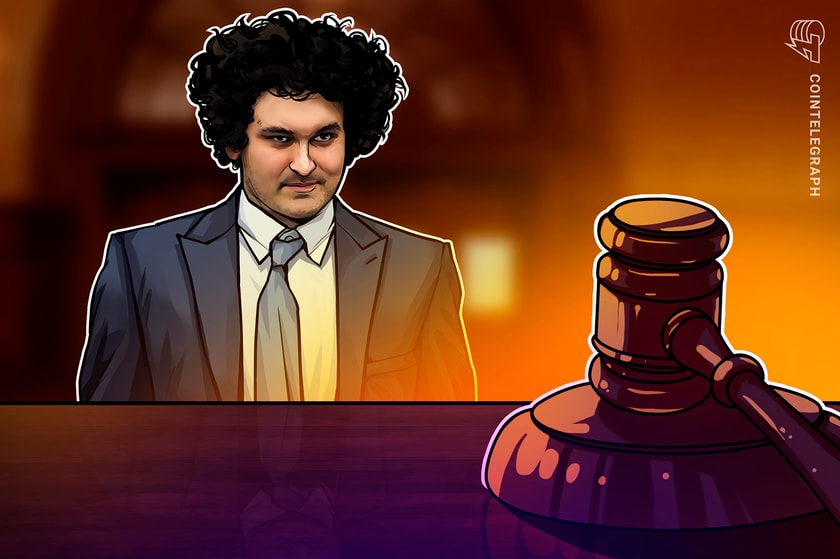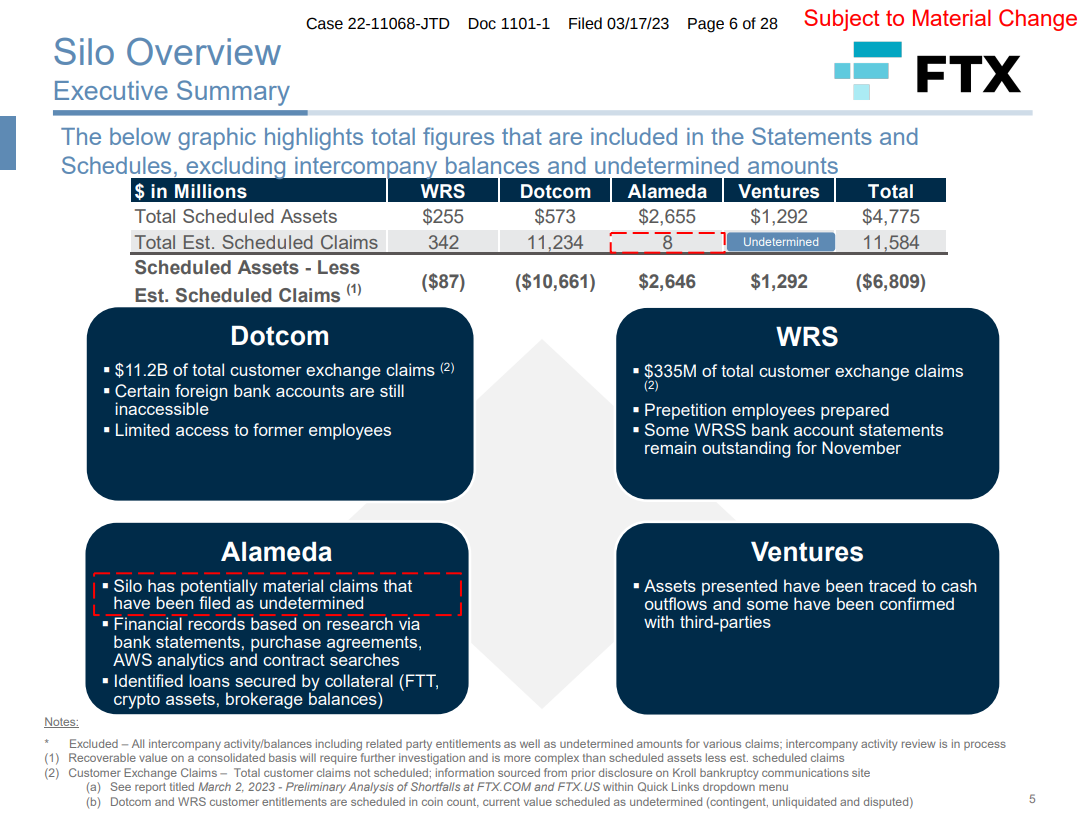
Nearly $700 million of the $873 million trust assets allowed to be sold by FTX comes from Grayscale’s flagship product, the Grayscale Bitcoin Trust, or GBTC.
Bankrupt crypto exchange FTX has been given the green light to sell around $873 million of trust assets, with proceeds used to repay creditors impacted by the exchange’s collapse in 2022, according to a Nov. 29 filing in a Delaware bankruptcy court.
The $873 million in assets will be sourced from FTX’s stakes in various trusts issued by crypto asset manager Grayscale Investments, valued at $807 million, and custody service provider Bitwise — valued at $66 million.
While the court document references a total of $744 million in assets — this is due to the valuation figure being as of Oct. 25, 2023. The assets have increased in value since.

The approval comes nearly four weeks after FTX debtors filed a motion to Judge John Dorsey on Nov. 3 requesting the sale of the six cryptocurrency trusts — including the Grayscale Bitcoin Trust (GBTC), Grayscale Ethereum Trust (ETHE), and Bitwise 10 Crypto Index Fund (BITW).
FTX currently owns over 22 million units of GBTC, Grayscale’s flagship Bitcoin product, now worth $691 million, while its 6.3 million shares of ETHE are now worth around $106 million.
Grayscale’s Ethereum Classic Trust (ETCG), Litecoin Trust (LTCN) and Digital Large Cap Trust (GDLC) are the three other trusts that FTX can now sell to recoup funds for impacted FTX customers.

FTX’s administrators, headed by John. J Ray III, has been working to recover assets since Sam Bankman-Fried’s former empire collapsed in November 2022.
So far, around $7 billion in assets has been recovered, with nearly half of that coming in the form of cryptocurrencies ($3.4 billion).
In June, FTX’s debtors estimated the total amount of customer assets misappropriated was $8.7 billion.
Related: FTX Foundation staffer fights for $275K bonus promised by SBF
Meanwhile, Bankman-Fried was convicted on seven fraud-related charges on Nov. 2 and is set to be sentenced on March 28.
He remains in Brooklyn’s Metropolitan Detention Center for the time being, where he recently paid four mackerels in exchange for a haircut.
Magazine: Deposit risk: What do crypto exchanges really do with your money?













